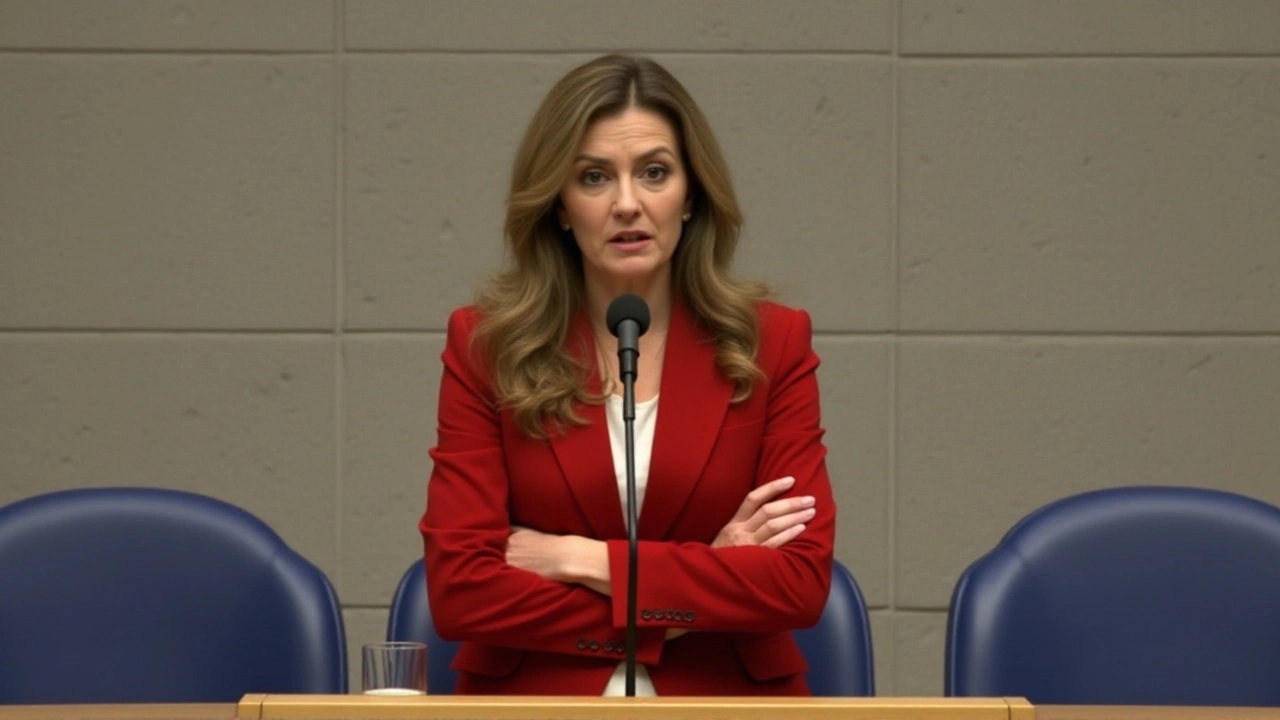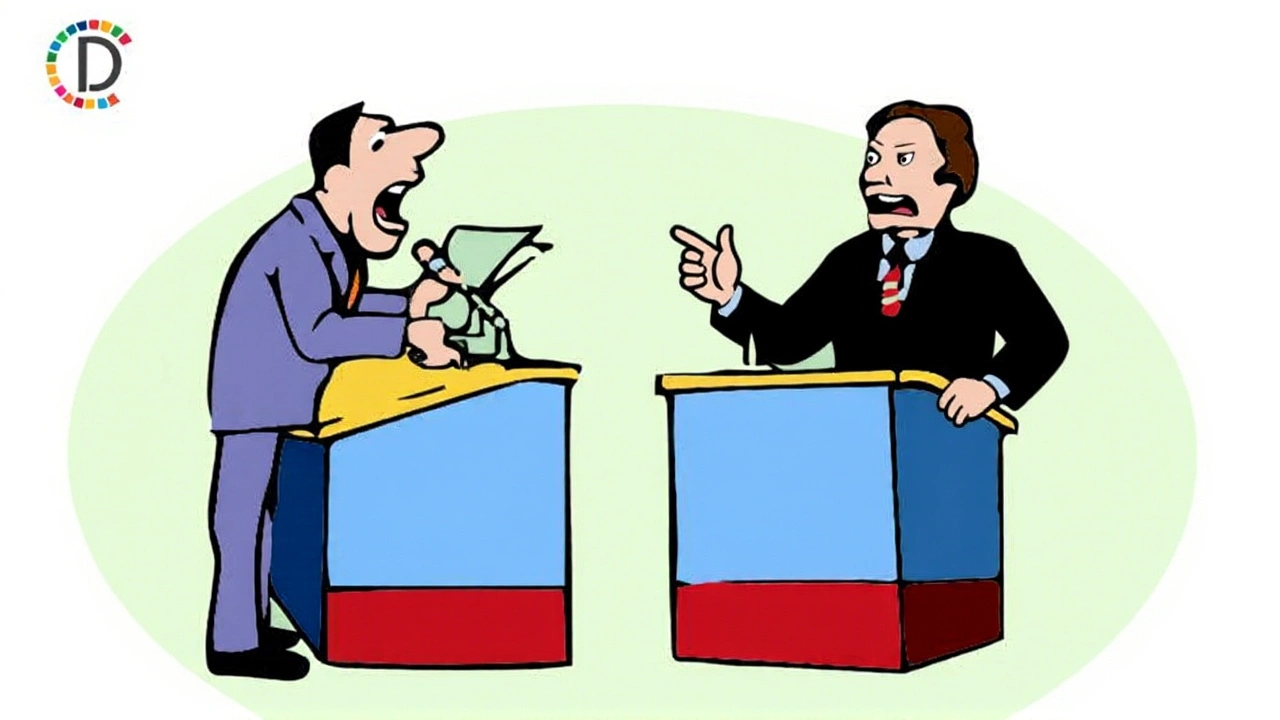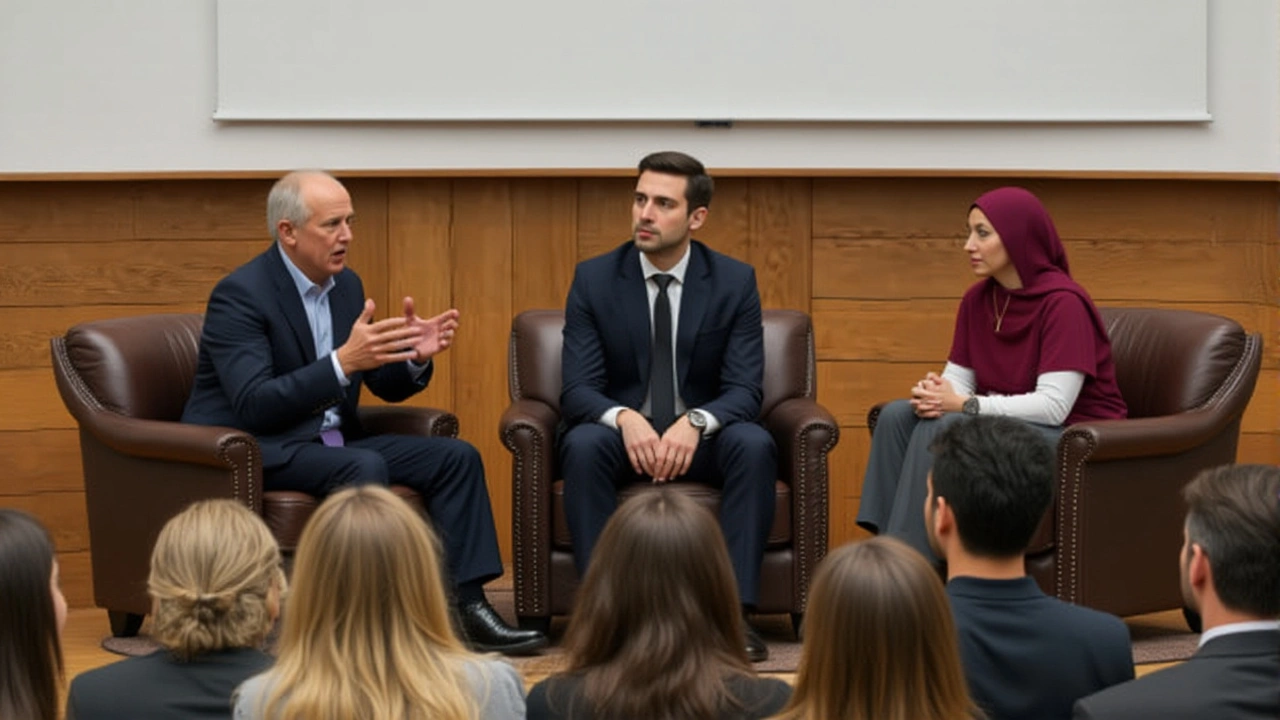When Rob Jetten, the 36-year-old leader of Democrats 66, walked onto the campus of the University of Amsterdam in late 2023, students didn’t hold back. They asked the hard question: Where’s the money? It wasn’t just a routine campaign stop—it felt like home. Jetten, once a junior minister in the previous cabinet, knows these halls. He’s debated here before, spoken to the same skeptical faces, and now, as his party surges in polls, he’s back—not just to campaign, but to defend a vision for the Netherlands’ future.
Education in English: A Battle Over Talent
Jetten didn’t shy away from the most contentious part of D66’s education policy: scrapping the 30% cap on bachelor’s degrees taught entirely in English. That rule, imposed in 2022 by then-Education Minister Robbert Dijkgraaf (also from D66), was meant to protect Dutch-language higher education. But Jetten calls it a mistake. "We did that under pressure from a large majority in parliament," he told students. "And I think that it wasn’t a bad idea in some cases. But if you ask students what they want, they want lessons in English in a wide range of courses, because it attracts new talent from abroad."
The effect, he argued, is already visible. Dutch universities of applied sciences are struggling to recruit international faculty and students. Research institutions are losing ground to Germany and Sweden, where English-language programs are more widespread. "You can see the effect," Jetten said. "It’s not just about prestige—it’s about keeping our innovation ecosystem alive."
Migration: Smart, Not Simple
While Geert Wilders and his far-right Freedom Party (PVV) campaigned on a promise to shut the door completely to asylum-seekers, Jetten took a more nuanced line. "We want to rein in migration," he said during the final televised debate, "but also accommodate asylum-seekers fleeing war and violence."
His real distinction came when he turned to labor migration. "We want to invest in biotech, fintech and the chip sector," Jetten declared, "because that’s the core of our earning potential." His solution? Tighten rules for low-wage labor migration while opening the door wider for skilled workers. "By being tougher at the bottom end," he explained, "we can create room to keep taking in migrants to work in sectors where there is much more economic potential."
He also pushed back against the narrative that expats are temporary freeloaders. "The idea that expats come in here like some kind of predators and then leave is simply untrue," Jetten said. "The fact is they often hang around in the Netherlands, start businesses and add to economic growth."

Housing and Planning: Thinking Ahead
One of Jetten’s most practical policy ideas flew under the radar: long-term housing planning tied to economic growth. "We need to be better at thinking ahead," he said. "If we know that a company like ASML is going to grow strongly in Eindhoven in the next few years, we should get started on building extra houses so it doesn’t put pressure on the housing market."
It’s a simple concept—plan infrastructure before demand spikes—but it’s rarely implemented. In the Netherlands, where housing shortages have driven rents up 40% since 2020, Jetten’s forward-looking approach stood out. He wasn’t just reacting to protests—he was trying to prevent them.
The Election That Could Reshape Europe
The snap election, triggered by Wilders’ political maneuvering, closed on election day with exit polls showing his party leading—but not by enough to govern alone. D66, once seen as a minor player, surged to second place. The result? A fractured parliament. No party will win a majority in the 150-seat House of Representatives. Coalition talks, starting Thursday, will be brutal. And the stakes? High.
"The Netherlands is one of the biggest and better performing eurozone economies," noted political analyst Tordoir in ABC News. "If it remains missing in action, Europe’s single market, defense effort and economic security will suffer."
That’s why Jetten’s vision matters—not just for Dutch students or tech workers, but for the entire EU. His party’s push for skilled migration, English-language education, and strategic infrastructure could make the Netherlands a magnet for innovation. Or, if Wilders gains disproportionate influence, it could trigger a retreat from global engagement.

Student Voices: Voting in Bathrobes
At the Delft University of Technology, students turned voting into a ritual. Lucas van Krimpen and his friends cast ballots at the ornate former City Hall—wearing bathrobes, carrying mugs of coffee. "It’s a house tradition," he said. "We’re not just voting for a party. We’re voting for the kind of country we want to live in."
That’s the undercurrent of this election. It’s not just about Wilders’ anger or Jetten’s optimism. It’s about identity. Will the Netherlands double down on openness, or retreat into isolation? The answer will shape not just its universities and tech hubs—but its place in the world.
Frequently Asked Questions
Why is Rob Jetten pushing to remove the 30% English-language cap on bachelor’s degrees?
Jetten argues that limiting English-taught programs harms the Netherlands’ global competitiveness. International students and researchers prefer institutions with broad English offerings, and Dutch universities of applied sciences are already seeing declining applications. Removing the cap, he says, would help attract talent in tech, science, and engineering—key sectors for future economic growth.
How does Jetten’s migration policy differ from Geert Wilders’?
While Wilders wants to halt all asylum-seeker immigration, Jetten supports controlled migration: restricting low-wage labor but actively recruiting skilled workers in biotech, fintech, and semiconductors. He distinguishes between economic migrants and refugees, arguing that high-skill immigration fuels innovation without straining social services.
Could Rob Jetten become the next Dutch prime minister?
Yes—he’s widely seen as the most likely candidate to lead a coalition government. At 36, he’d be the youngest prime minister in Dutch history. But D66 won’t win a majority alone; he’ll need to negotiate with other parties, likely including the center-right VVD or progressive D66’s traditional allies. His ability to build consensus will determine his success.
What role does ASML play in Jetten’s economic vision?
ASML, the Dutch semiconductor giant based in Eindhoven, is central to Jetten’s strategy. He sees it as a driver of high-value jobs and global demand for skilled labor. His housing and migration policies aim to support companies like ASML by ensuring they have access to international talent and adequate infrastructure—avoiding the bottlenecks that have plagued other Dutch tech hubs.
Why is the Dutch electoral system so complex?
The Netherlands uses proportional representation, meaning seats in the 150-seat House of Representatives are allocated based on vote share. This makes it nearly impossible for one party to win a majority, forcing coalitions. While it ensures broad representation, it also leads to lengthy negotiations—sometimes months—and governments that are fragile. The next cabinet could take weeks to form.
How might this election affect the European Union?
The Netherlands is a key player in EU defense, fiscal policy, and innovation funding. If Wilders gains influence, he could block EU initiatives on climate, migration, or defense spending. If Jetten leads a pro-European coalition, the Netherlands could reassert itself as a driving force for reform—particularly in tech and education policy that benefits the entire bloc.
